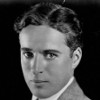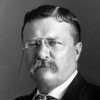“ No one of us cares permanently to have some one else conscientiously striving to do him good; what we want is to work with that some one else for the good of both of us—any man will speedily find that other people can benefit him just as much as he can benefit them. ”
Theodore Roosevelt, Theodore Roosevelt; an Autobiography (1913). copy citation
| Author | Theodore Roosevelt |
|---|---|
| Source | Theodore Roosevelt; an Autobiography |
| Topic | work care |
| Date | 1913 |
| Language | English |
| Reference | |
| Note | |
| Weblink | http://www.gutenberg.org/files/3335/3335-h/3335-h.htm |
Context
“for unless there is this feeling of fellowship, of common effort on an equal plane for a common end, it will be difficult to keep the relations wholesome and natural. To be patronized is as offensive as to be insulted. No one of us cares permanently to have some one else conscientiously striving to do him good; what we want is to work with that some one else for the good of both of us—any man will speedily find that other people can benefit him just as much as he can benefit them.
Neither Joe Murray nor I nor any of our associates at that time were alive to social and industrial needs which we now all of us recognize. But we then had very clearly before our minds the need of practically applying certain elemental virtues, the virtues of honesty and efficiency in politics, the virtue of efficiency side by side with honesty in private and public life alike, the virtues of consideration and fair dealing in business as between man and man, and especially as between the man who is an employer and the man who is an employee.”
source



